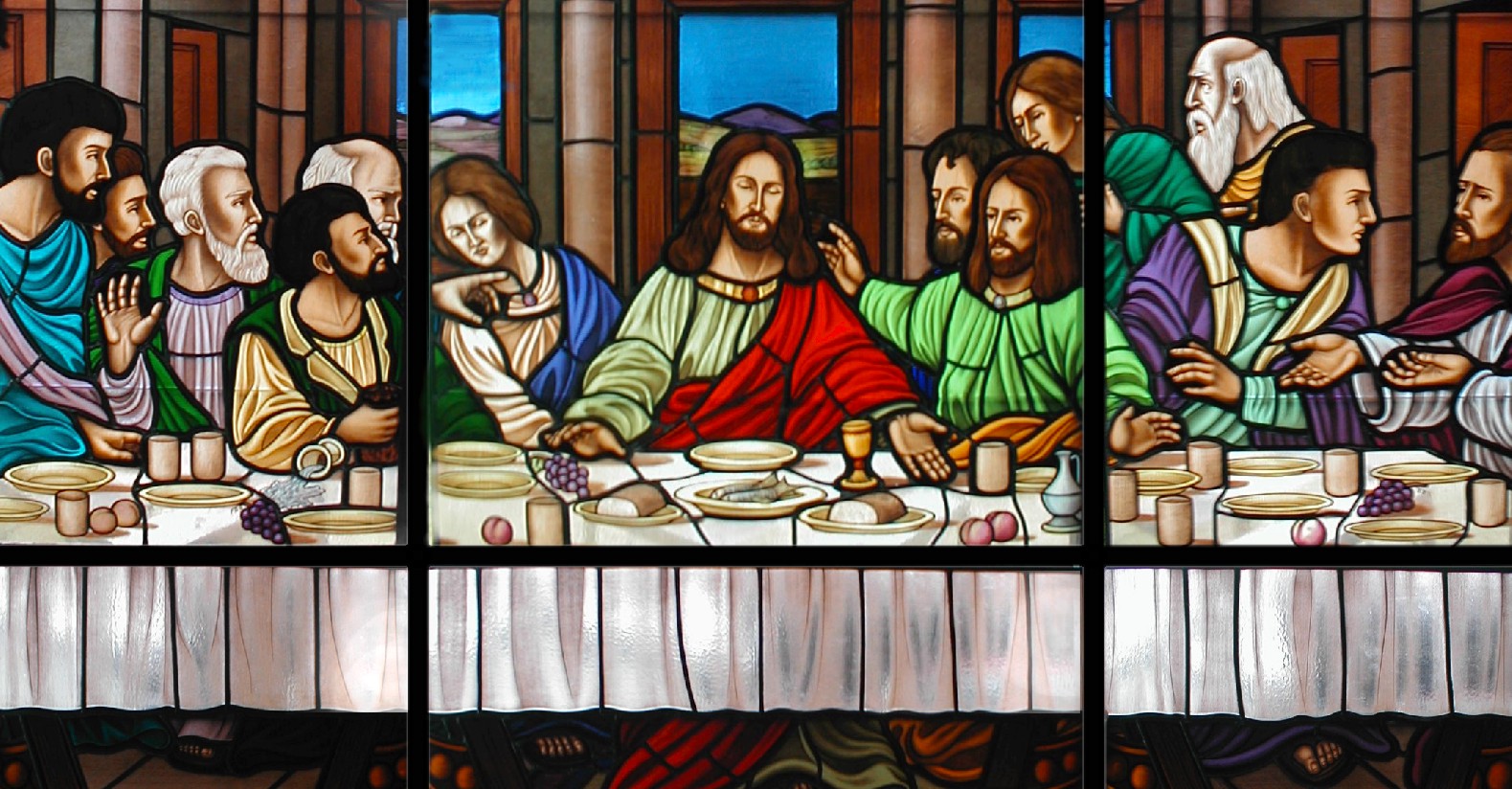 In the man Jesus there is participation in the very life of the Trinity, in the social life of God. This supernatural social life, which the life of grace brings to man, never destroys his natural life. There is instead a marvelous interweaving of the two. The supernatural social life, which is grace, will give origin to and allow for a social life that is naturally perfect, sincne Chrtist will found a visible Church. […] But what is the crossing point between Christ and the Church? How do move from the spiritual presence of the humanity of Christ to the presence of Christ in humanity? In order to understand it we must contemplate the human nature of Jesus before his death and after his Resurrection. We must meditate on his own flesh and blood which, after his exaltation, becomes life-giving. […] Before the crucifixion, the range of action of Christ’s humanity is circumscribed by the limits of his mortal body that is liable to death; with his death and Resurrection, it becomes life-giving spirit. […] Therefore, on the glorious Easter Sunday, when the Spirit penetrates and illumines every part of Jesus’s body, the Church also receives the Holy Spirit: it becomes the Body of Christ. You could say that Christ planted a particular body and raised up [a] Mystical Body, the Church. And so the mystery of human social life re-flowers also in these marvelous events. Since Christ wished to become a member of the human community, he became its Head. To this end, by suffering on the cross, he redeems the human race, since it it spiritually enclosed in him, and also his own flesh through which he wished to work the redemption; and so it acquires certain infinite dimensions. It is spiritualized and becomes the very image of the new humanity. That body which for the man a limiting principle, for Jesus after his Resurrection, is a universalizing principle of life. […] The term “Mystical Body of Christ” and its more precise and determining meaning, refers to the Church that continues the very work of Jesus here on earth. […] Christ, the Son of God, was a true man, he was perfect man; likewise, the Mystical Body is fully human, perfectly human, besides divine. The Incarnation is daily continuing its work, until the end of the ages, in the visible Church. Pasquale Foresi From: Pasquale Foresi, Teologia della Socialità, (Rome: Città Nuova, 1963), 85.
In the man Jesus there is participation in the very life of the Trinity, in the social life of God. This supernatural social life, which the life of grace brings to man, never destroys his natural life. There is instead a marvelous interweaving of the two. The supernatural social life, which is grace, will give origin to and allow for a social life that is naturally perfect, sincne Chrtist will found a visible Church. […] But what is the crossing point between Christ and the Church? How do move from the spiritual presence of the humanity of Christ to the presence of Christ in humanity? In order to understand it we must contemplate the human nature of Jesus before his death and after his Resurrection. We must meditate on his own flesh and blood which, after his exaltation, becomes life-giving. […] Before the crucifixion, the range of action of Christ’s humanity is circumscribed by the limits of his mortal body that is liable to death; with his death and Resurrection, it becomes life-giving spirit. […] Therefore, on the glorious Easter Sunday, when the Spirit penetrates and illumines every part of Jesus’s body, the Church also receives the Holy Spirit: it becomes the Body of Christ. You could say that Christ planted a particular body and raised up [a] Mystical Body, the Church. And so the mystery of human social life re-flowers also in these marvelous events. Since Christ wished to become a member of the human community, he became its Head. To this end, by suffering on the cross, he redeems the human race, since it it spiritually enclosed in him, and also his own flesh through which he wished to work the redemption; and so it acquires certain infinite dimensions. It is spiritualized and becomes the very image of the new humanity. That body which for the man a limiting principle, for Jesus after his Resurrection, is a universalizing principle of life. […] The term “Mystical Body of Christ” and its more precise and determining meaning, refers to the Church that continues the very work of Jesus here on earth. […] Christ, the Son of God, was a true man, he was perfect man; likewise, the Mystical Body is fully human, perfectly human, besides divine. The Incarnation is daily continuing its work, until the end of the ages, in the visible Church. Pasquale Foresi From: Pasquale Foresi, Teologia della Socialità, (Rome: Città Nuova, 1963), 85.
Want the good of others
Want the good of others




0 Comments